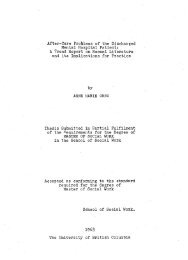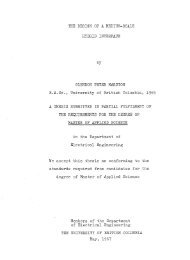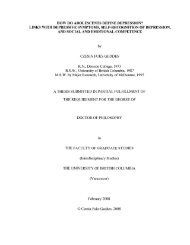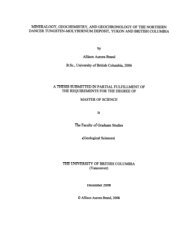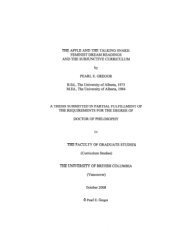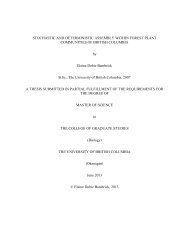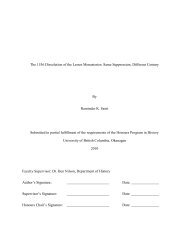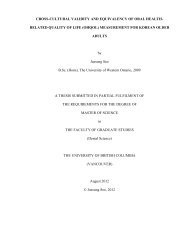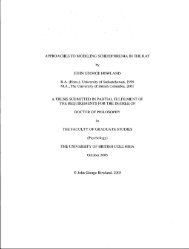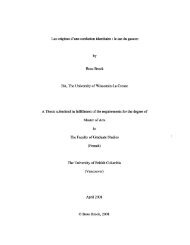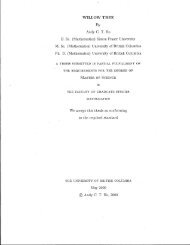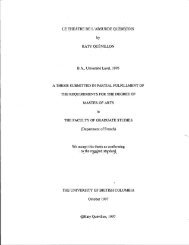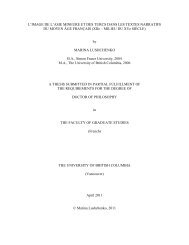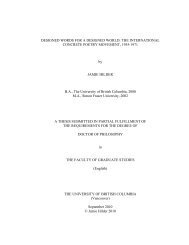A STUDY OF THE THEORY OF APPRAISAL FOR SELECTION By ...
A STUDY OF THE THEORY OF APPRAISAL FOR SELECTION By ...
A STUDY OF THE THEORY OF APPRAISAL FOR SELECTION By ...
Create successful ePaper yourself
Turn your PDF publications into a flip-book with our unique Google optimized e-Paper software.
diminished from its previous absolute affirmation. In the end,<br />
we can affirm only that archives "do and should embody an<br />
essential element of truth," and that the record we hold "must be<br />
as complete, impartial and truthful as it is possible for us to<br />
ensure."44 In spite of our increased awareness of the relativity<br />
of truth, however, society's practical reliance on and need for<br />
the preservation of the probative nature of documentary evidence,<br />
as seen in the proceedings of the judicial system, remains<br />
paramount.<br />
Jenkinson's careful articulation of the integrity of<br />
archives clearly established the theoretical framework for<br />
appraisal. He convincingly argued that in order to maintain the<br />
usefulness of archives to those who rule and explain the conduct<br />
of society, any theory of appraisal must identify ways to<br />
preserve the impartiality and authenticity of records. In<br />
essence, his "golden rule of archive making" applies the<br />
structural analysis inherent in the principle of provenance to<br />
the identification of records that document the creator's<br />
functions and activities. His emphasis on the judgement of the<br />
creator ensures that no outside perspective can distort the<br />
historical value and the future research use of the records.<br />
In spite of Jenkinson's arguments for administrative value<br />
as the sole arbiter of preservation, the supremacy of historical<br />
value has remained intact, as enunciated in the 1889 appraisal<br />
rules, and reaffirmed in the Grigg Report of 1952. The Report<br />
44 'bid, 130.<br />
72



